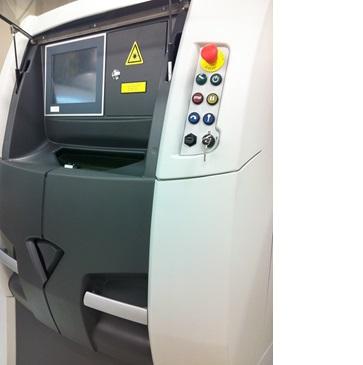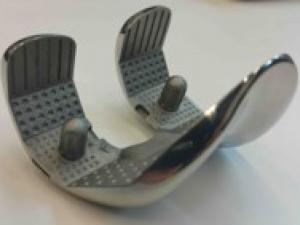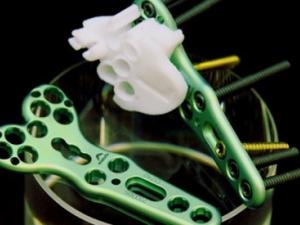Advanced Manufacturing Facilities
-
3D metal and ceramic printing
3D printing facilitates rapid prototyping and manufacturing, allowing for the fast availability of functional prototypes for product development, as well as on demand manufacturing for research and industry requirements.
IPAS can provide your 3D printing needs directly from your CAD drawings, with a wide variety of metal alloys and ceramics on its latest Phenix PXM selective laser melting printer.3D printing complements traditional development and manufacturing methods and reduce the time and cost of designing metal or ceramic parts by printing them directly from digital input.
3D printing will speed your iterative design and allow designers, researchers and industry to print prototypes in hours, obtain feedback, refine designs, and allow identification of design errors early and allow quick repeat of the cycle until designs are perfected.
The availability of metal 3D printing will not only reduce time, it will cut down costs associated with traditional prototyping and tooling.

3D Systems ProX200
- Build volume: 140mm X 140mm X 100mm
- Build materials: Stainless Steel, Tool Steel, Titanium Alloy, Cobalt Chromium Alloy, Aluminium Alloy, Inconel

Renishaw AM400 (x3 machines)
- Build volume: 250mm X 250mm X 300mm
- Build materials: Stainless Steel, Tool Steel, Titanium Alloy, Cobalt Chromium Alloy, Aluminium Alloy, Inconel

Material properties and resolution
- High density parts (>99%)
- Properties as good as high quality castings
- Uniform properties throughout the build volume
- Detail size: ~150µm
3D metal printing support
- Characterisation facilities
- Material treatments
- Parts finishing
-
Materials processing
IPAS materials processing facility is equiped to process glass materials including:
- Cutting
- Polishing
- Etching
- Annealing
- Drilling
- Machining
5-Axis ultrasonic and HSC milling
New high-tech materials and much higher demands being placed on surface quality and precision have made the utilisation of new manufacturing technologies and machining methods indispensable.
IPAS’s DMG Ultrasonic 20 linear offers the perfect solution by combining precision and versatility at a level of efficiency that was inconceivable only a few years ago.Your specialised machining requirements are now available at IPAS for soft, hard and advanced high-performance materials which have been traditionally difficult to machine. By the kinematic superposition of the tool rotation with an additional oscillation, these traditionally difficult to machine high-performance materials can now be machined with excellent results.
From medical and dental, to precision optical, engineering and aerospace, IPAS can provide the solution to your machining requirements.
- Simultaneous 5-axis machining
- Latest ultrasonic technology
- High positioning accuracy
- Surface finish: Ra <0.1µm
- Work piece size: 200 X Ø 200mm
Key contact
Luis Lima-Marques (IPAS Laboratory Manager)
Institute for Photonics and Advanced Sensing (IPAS)
The University of Adelaide, AUSTRALIA 5005
Telephone: +61 (0)8 8313 0760
Facsimile: +61 (0)8 8303 4380
Email: luis.lima-marques@adelaide.edu.au






